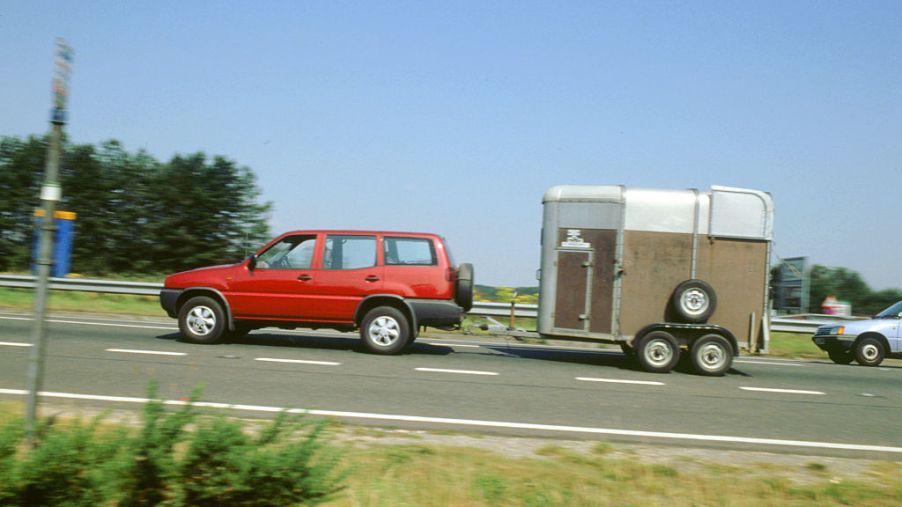
Here’s Why You Can Tow With a Front-Wheel Drive Car
While there are plenty of ads for all-wheel drive vehicles these days, front-wheel drive isn’t going away any time soon. According to Edmunds, front-wheel drives still power most new U.S. passenger cars. That’s not surprising since two-wheel drive cars generally cost less and have better gas mileage than their all-wheel and rear-wheel counterparts. In some situations, front-wheel drive cars even have better traction.
One thing front-wheel drives are not known for, though, is hauling heavy loads. Drivers who tow regularly usually have a heavier rear-wheel or all-wheel drive vehicle to get the job done. But what about the rest of us, who don’t haul loads every day, yet do from time to time need to move to a new house, drive the kids out to college, or maybe bring a new piece of furniture home? Do we need to rent a U-Haul just to get a couch across town?
Not necessarily. Front-wheel-drive towing is an option, so long as you consider a few things ahead of time.
How front-wheel drive works
To decide whether towing is right for your car and your load, first, it’s important to understand how front-wheel drive works.
Basically, a front-wheel drive car is called that because the engine sends all the vehicle’s power to the front wheels. Since there’s no need to also connect the engine to the rear wheels, the drivetrain is more compact, Edmunds explains.
The auto site adds that a front-wheel drive car is less likely to fishtail than one with rear-wheel-drive. It is, however, more likely to experience “torque steer,” where unequal power being applied to each front wheel makes the car pull to one side when accelerating fast.
None of this means your front-wheel drive car can’t be used for towing, but it does add some factors to consider. Here are some questions to ask yourself before you haul that new sofa home.
Is your load balanced?

Weight packed near the front of a trailer has an outsized impact on front-wheel-drive cars, Popular Mechanics explains. That’s because the front-loaded weight pulls down on the trailer’s hitch, and that hitch, in turn, pulls down on the rear of the car. When the back of the car moves down, the front of the car moves up. Even if the front tires don’t leave the road, a lighter front end affects your car’s handling.
Keep this in mind when loading your front-wheel drive car for towing. Take care distributing the weight, and make sure your trailer isn’t front-heavy.
What is your front-wheel drive car’s towing capacity?
Make sure your car is up for the weight you plan to pull. How do you figure out your car’s towing capacity? Start with the owner’s manual.
Look for the Gross Vehicle Weight Rating (GVWR). If that number is less than the combined weight of your trailer and its contents, don’t hitch up. If your load is well under that number, you’re probably good to go. But if it’s close, consider lightening things up, and take extra care with that load balancing, as well.
How are your brakes?
The more your car weighs, the harder your brakes have to work. Front-wheel drive cars tend to be relatively light, and Popular Mechanics says that a trailer could increase the weight your brakes need to handle a lot. This means, to start, you’ll have to drive slower than you’re used to and give yourself plenty of room to stop.
It also means you should be sure your brakes are in good shape and don’t need changing before you head out.
Are you in a hurry?
More weight doesn’t just make it harder to slow a car down. It also makes it harder to speed up. Popular Mechanics points out that when a rear trailer reduces the weight of the front tires against the road, accelerating on an uphill slope, especially after a stop, might be problematic.
Whatever the grade of the road, a front-wheel drive towing car will not speed up quickly. If you’re in a hurry, it might be better to rent that U-Haul after all.
With up-front preparation and careful driving, however, your front-wheel drive car is probably up for that tow job after all.



